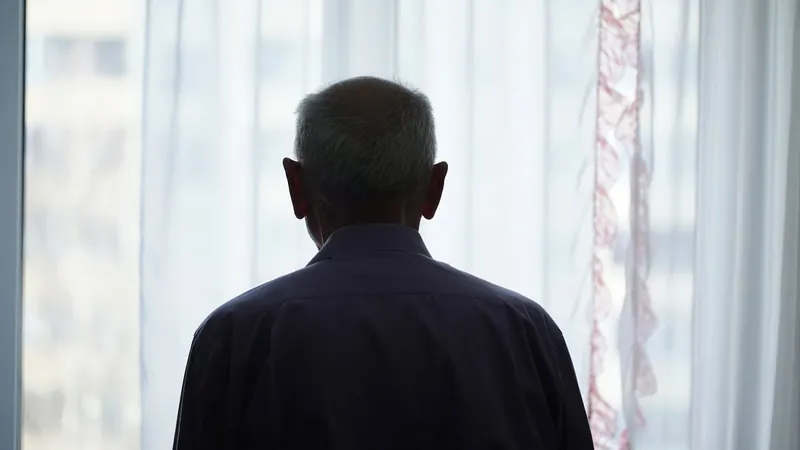
The Silent Epidemic: How Loneliness is Hitting Older Adults Harder Than Ever
2024-12-14
Author: Mei
The Growing Rates of Loneliness in Older Adults
In a distressing revelation from a new study published by the American Medical Association, it has been found that a staggering 29.2% of adults aged 50 to 80 reported feeling a sense of isolation "some of the time" or "often" in 2024. This startling statistic emerged from a survey involving 2,051 to 2,576 adult respondents. The findings suggest that loneliness is particularly prevalent among those who are unemployed, live alone, and have lower incomes, underscoring a pressing social issue that affects millions.
Loneliness as a Public Health Concern
The issue of loneliness transcends mere human emotion; it has evolved into a public health concern. As outlined in a 2023 advisory by the US Surgeon General, loneliness and social isolation pose significant threats to public health. The COVID-19 pandemic has exacerbated these feelings, but it also sparked a crucial conversation about the ramifications of social isolation.
Mental and Physical Health Implications
Prolonged experiences of loneliness can devastate mental health, leading to heightened anxiety, depression, and an increased risk for serious health complications such as heart disease and dementia. In an eye-opening statement, US Surgeon General Vivek Murthy likened the mortality risk associated with chronic loneliness to smoking up to 15 cigarettes a day, revealing it to be more serious than obesity and physical inactivity.
Demographics Affected by Loneliness
This pervasive issue does not affect all demographics equally. Older adults, young individuals, single parents, and those with disabilities or compromised health are particularly vulnerable. Factors including shrinking social circles, rising social media use, and increased ideological polarization contribute to this epidemic of loneliness.
Complex Connection Between Loneliness and Health
The connection between loneliness and health is complex. The absence of social support figures can make engaging in healthy behaviors—like exercising, cooking nutritious meals, or keeping medical appointments—more daunting, especially for older adults who may have mobility issues or lack transportation. Additionally, loneliness induces stress, activating the sympathetic nervous system, which can raise stress hormones, trigger inflammation, and lead to chronic hypertension.
Widespread Impact of Loneliness
Interestingly, nearly half of US adults admitted to feeling lonely in recent years, thus showing the widespread impact of this concern. Connection, whether through meaningful conversations, shared experiences, or acts of kindness, plays a vital role in alleviating feelings of isolation. Engaging with others can take many forms, from joining clubs or hobby groups to participating in support networks like the National Alliance on Mental Illness.
Taking Action Against Loneliness
If you're grappling with loneliness, know that you are not alone in this battle. Seeking professional therapy to address underlying mental health issues or simply reaching out and creating connections can make a world of difference. Don’t let the silent epidemic of loneliness persist—with each step you take toward building community, you are contributing to a healthier, more connected world.
A Call to Combat Loneliness
Remember, combatting loneliness starts with you—let’s break the silence and foster belonging for all.



 Brasil (PT)
Brasil (PT)
 Canada (EN)
Canada (EN)
 Chile (ES)
Chile (ES)
 España (ES)
España (ES)
 France (FR)
France (FR)
 Hong Kong (EN)
Hong Kong (EN)
 Italia (IT)
Italia (IT)
 日本 (JA)
日本 (JA)
 Magyarország (HU)
Magyarország (HU)
 Norge (NO)
Norge (NO)
 Polska (PL)
Polska (PL)
 Schweiz (DE)
Schweiz (DE)
 Singapore (EN)
Singapore (EN)
 Sverige (SV)
Sverige (SV)
 Suomi (FI)
Suomi (FI)
 Türkiye (TR)
Türkiye (TR)